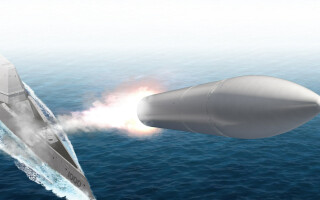Embedded systems for military use will rise 7.9% per year by 2031, report predicts
NewsFebruary 24, 2023

NEW YORK. The global market for embedded systems used by the military is predicted to reach a revenue of $3.26 billion by 2031, growing at a combined annual growth rate (CAGR) of 7.9% during the forecast period 2022-2031, according to a nre report by Research Dive, "Military Embedded Systems Market: Global Opportunity Analysis and Industry Forecast, 2022-2031."
"One of the market drivers, say the study authors, will be the dawn of sophisticated sensors and as-yet-unknown waveforms, which means that market players will develop quick and flexible electronic warfare (EW) systems that can identify and block these signals.
✓ Also driving the market, according to the study, will be financing hikes in nations' military budgets, as they seek to modernize their military and defense equipment. In addition, revenue will be boosted by countries' widespread adoption of multicore processors, wireless technologies, and revolutionary EW systems.
✓ One factor that may constrain the military embedded systems market is the need to ensure security in embedded systems, which translates into many architectural problems imposed by these systems' specific properties; the study authors say that this aspect of the market will necessitate a deeper comprehension of the overall security issue. "
For additional information, visit the Research Dive website.
Mission-aware routing technology demonstrated for DoD by Lockheed Martin, Juniper Networks
NewsFebruary 23, 2023

ARLINGTON, Virginia. Lockheed Martin and Juniper Networks recently demonstrated mission-aware routing technology for the U.S. Department of Defense, Lockheed Martin announced in a statement.
The routing technology "will streamline and prioritize the flow of critical information from contested, remote environments to commanders stationed around the globe" using a hybrid software-defined wide-area network (SD-WAN) solution, the statement reads.
The technology does this by optimizing data flow to ensure the most important information is received first in real time, prioritized based on the content of the data as well as information exchange requirements and mission phase priorities, the statement continues.
The company says the purpose of the demonstration was to show the technology could withstand connectivity challenges in military environments, which involved cutting off primary communication channels in a lab environment and allowing the solution to reroute the information through secondary links.








No comments:
Post a Comment